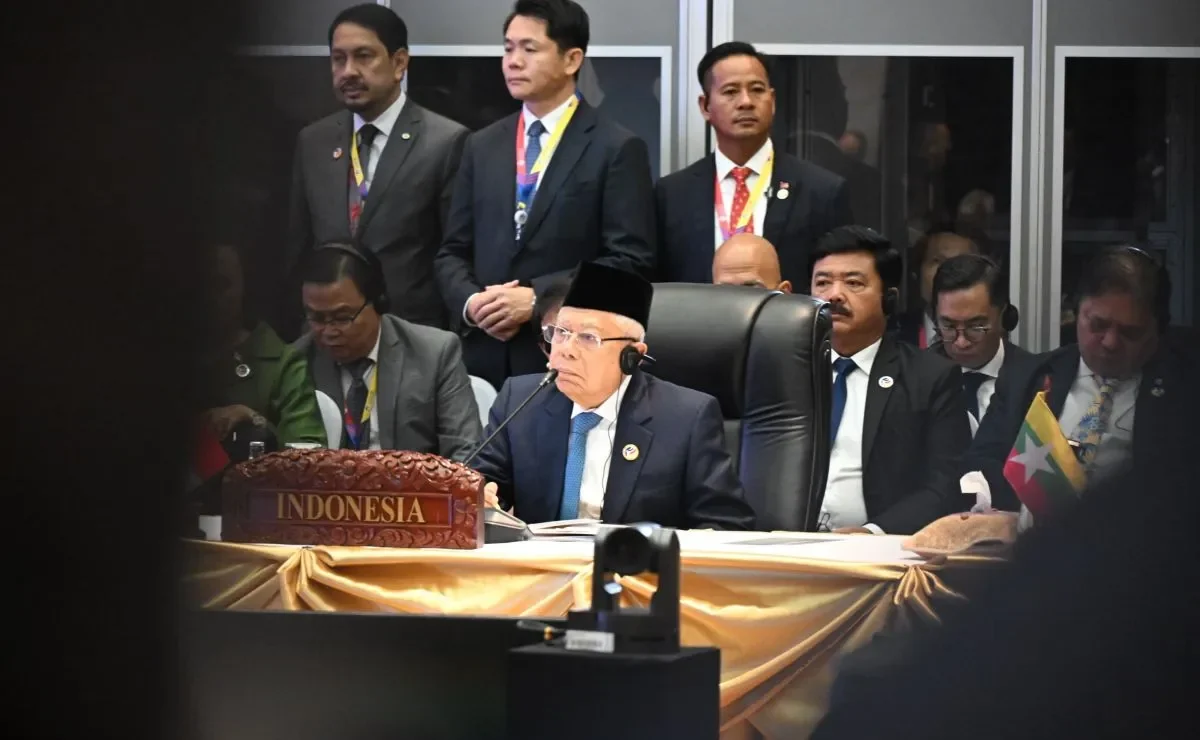WNAM REPORT: Indonesian Vice President Ma’ruf Amin proposed the reactivation of direct communication between high-ranking ASEAN officials and the Chinese government to discuss the tension in the South China Sea.
“I propose reactivating direct communication between high-ranking ASEAN officials and the Chinese government, which has been agreed upon since 2016, to prevent incidents in the South China Sea,” he stated at the ASEAN-China Summit as part of the 45th ASEAN Summit in Vientiane, Laos, on Thursday.
He remarked that the conflict in the South China Sea would impact the Southeast Asian region and the world.
To that end, the vice president urged ASEAN member countries and China to resolve disputes peacefully through dialogue while respecting international law, especially the United Nations Convention on the Law of the Sea (UNCLOS) adopted in 1982.
The tension in the South China Sea was one of the topics discussed during the series of the 45th ASEAN Summit in Laos apart from the crisis in Myanmar and the conflict in the Gaza Strip.
The current tension in the South China Sea was caused by territorial disputes between China and Vietnam and China and the Philippines, where ASEAN leaders called on the parties to implement international legal norms, namely the 1982 UN Convention on Maritime Law.
Based on information gathered on August 19, 2024, several Chinese and Philippine ships also collided around the area.
Philippine Coast Guard spokesman Jay Tarriela stated that the Chinese Coast Guard ships near the Sabina Shoal caused a collision that damaged two Philippine Coast Guard ships.
However, Chinese Coast Guard spokesman Geng Yu remarked that the two Philippine Coast Guard vessels had illegally entered the waters of Xianbin Reef.
Another collision occurred on August 25, 2024, where both sides blamed one another.
China was accused of blocking two Philippine vessels on a “humanitarian mission” to deliver logistical supplies to Teresa Magbuana, a Philippine Coast Guard vessel deployed to Sabina Shoal a few months back.
Meanwhile, the Chinese government claims sovereign rights and jurisdiction over the islands called “Nanhai Zhudao” in the South China Sea, comprising Dongsha Qundao, Xisha Qundao, Zhongsha Qundao, and Nansha Qundao and their surrounding waters.


